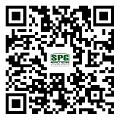Test Items
European Union
- EN71-1 Physical and Mechanical Performance Testing
- EN71-2 Flammability Performance Testing
- EN71-3 Content detection of 19 toxic and transferable elements
- EN71-9 Organic Compounds
- Safety performance testing of electric toys
- Photobiological Safety Performance
- N-nitrosamines and N-nitrosamines
- Bisphenol A migration
- Phenol
- flame retardants
America
- American Toy Safety Standard ASTM F963: Physical and Mechanical Performance Testing, Flammability Testing, and Heavy Metal Content Testing
- Battery Operated Toys Safety
- Toxicology LHAMA, Microbiology (USP61,62, USP51), MSDS
- CPSIA (H.R.4040): Lead, Phthalates
- 16CFR Federal Regulations
- California 65
- FCC (SDOC, ID)
- Packaging Directive TPCH
- TSCA Act
- Canadian Consumer Product Safety Act CCPSA
Middle East GCC Certification
System and factory inspection services
Contact Us +
 Service Hotline
0754-88894222
Service Hotline
0754-88894222
Shantou Perfect testing technology group Co., Ltd. (SPG)
Tel:0754-88894222 Fax:0754-88894229 Email:spg@spg.net.cn Support: 18688981981 Content: Mr Zhang 13924767878 Web:www.spg.net.cn Address:7th Floor, Zuocheng Building, Yuting Road, Chenghai District, Shantou City, Guangdong ProvinceTest Items
- European Union
- EN71-1 Physical and Mechanical Performance Testing
- EN71-2 Flammability Performance Testing
- EN71-3 Content detection of 19 toxic and transferable elements
- EN71-9 Organic Compounds
- Safety performance testing of electric toys
- Photobiological Safety Performance
- N-nitrosamines and N-nitrosamines
- Bisphenol A migration
- Phenol
- flame retardants
- America
- American Toy Safety Standard ASTM F963: Physical and Mechanical Performance Testing, Flammability Testing, and Heavy Metal Content Testing
- Battery Operated Toys Safety
- Toxicology LHAMA, Microbiology (USP61,62, USP51), MSDS
- CPSIA (H.R.4040): Lead, Phthalates
- 16CFR Federal Regulations
- California 65
- FCC (SDOC, ID)
- Packaging Directive TPCH
- TSCA Act
- Canadian Consumer Product Safety Act CCPSA
- Middle East GCC Certification
- System and factory inspection services
German PAHs
Since the discovery of a large amount of
PAHs in hammer handles in Germany in 2005, products containing PAHs have
attracted public attention, and since then, such cases have occurred
repeatedly. In November 2007, Germany's ZEK-01-08 document made a requirement
for PAHs, requiring mandatory PAHs testing to be included in GS certification
and controlling 16 PAHs. This regulation came into effect on April 1, 2008.
In order to comply with the new
requirements for PAHs, at the ZEK meeting in September 2011, the German
Technical Equipment and Consumer Goods Committee (AtAV) agreed to expand the
original list of PAHs from 16 to 18 (adding two substances, benzo [j]
fluoranthene and benzo [e] pyrene), applicable to the testing of all products.
The German Safety Technology Certification Center (ZLS) released a new standard
ZEK 01.4-08 on November 29, 2011, which requires products that have obtained GS
Mark certification to have 18 mandatory PAHs from July 1, 2012; The GS Mark
certification certificate issued from July 1, 2012 must comply with the new ZEK
01.4-08 regulations, and the original ZEK-01-08 will expire after June 30,
2012.
In August 2014, ATAV announced a new
standard AfPS GS 2014:01 PAK to regulate PAHs in consumer products. The new
standard was mandatory from July 1, 2015, and ZEK 01.4-08 expired after June
30, 2015.
Polycyclic aromatic hydrocarbon detection:
Polycyclic aromatic hydrocarbons (PAHs) refer to a class of organic compounds
with two or more benzene rings. Polycyclic aromatic hydrocarbons (PAHs) are
hydrocarbons with two or more benzene rings in their molecules, including more
than 150 compounds such as naphthalene, anthracene, phenanthrene, and pyrene.
They are toxic pollutants formed by incomplete combustion or pyrolysis of mineral
fuels (such as coal, oil, natural gas, etc.), wood, paper, and other
hydrocarbons.
Polycyclic aromatic hydrocarbons (PAHs)
have carcinogenicity, mutagenicity, and teratogenicity, and are mainly used in
consumer products such as electronics, motors, rubber products, plastic
products, automotive plastics, rubber parts, food packaging materials, toys,
container materials, and so on. The EU Directive 76/769/EEC on polycyclic
aromatic hydrocarbons, the US EPA in the United States, the German Food and
Daily Necessities Act (LFGB), and the German GS certification make testing for
polycyclic aromatic hydrocarbons (PAHs) a mandatory requirement. According to
the ZEK 01-08 document issued by the German Safety Technology Certification
Center (ZLS), the German AtAV Committee (Technical Equipment and Consumer
Goods) has decided to mandatory include PAHs testing in GS certification. This
regulation came into effect on April 1, 2008, and all GS certification agencies
will begin testing PAHs projects. Products that cannot pass the PAHs test will
not be able to obtain the GS certification mark and will enter Germany
smoothly. For products certified before April 1, 2008, a risk analysis for PAH
must be conducted within one year. If they cannot comply with PAH regulations,
the certification will be revoked.








